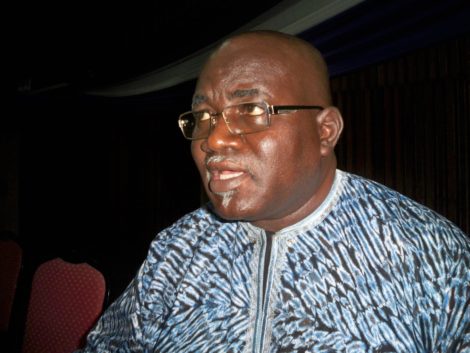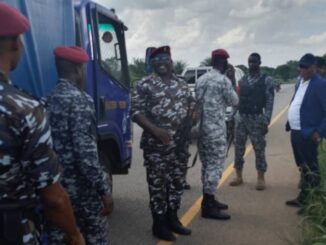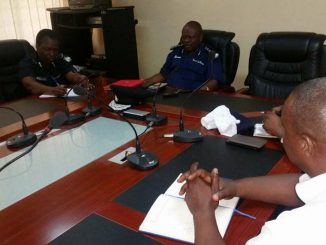
Revolt of the Underclass: The Coming Conflagration – Part 2
By Julius Spencer
In part 1 of this article, I drew attention to the fact that Sierra Leone has been following in the footsteps of Nigeria in many negative ways. I also pointed out how activities that were generally low on the scale of antisocial activities have been transformed into something more sinister both in Nigeria and Sierra Leone. Now, let’s continue.
Gangs in Nigeria are currently way ahead of those in Sierra Leone, partly because Nigeria is a much larger country with a huge population, but also because they have been at it much longer. However, like I said in part 1 of this article, Sierra Leone seems to have been following the footsteps of Nigeria and I believe we may get to the stage where their gangs are now in the not too distant future.Prof Abdullah in his article titled “Marginal Youths or Outlaws? Youth Street Gangs, Globalisation and Violence in Contemporary Sierra Leone” says, “Unlike rarray boy culture that had no central organisation or norms binding members to each other, gangsters are organised with a clear central command and control structure.”
He also points out in the article that poverty is a major contributory factor to the growth of gangsterism in any society.“They did not choose to become gangsters; the prevailing economic conditions arguably presented gangsterism as a possible alternative to mass unemployment. It is therefore not coincidental that our data reveals that a sizeable number of the study sample came from poor family backgrounds.”
A number of things that have been happening in Sierra Leone in the recent past, particularly in Freetown, point clearly to the existence of gangs. One is the frequent incidents of fighting among school boys.
My office used to be on Circular road for many years, and in recent times, the area, particularly around Model Junction has been laid siege by boys from Rokel, Model and Albert Academy schools fighting each other. We have also witnessed many occasions of panic in the area when groups of boys passing through the area went on the rampage, snatching phones and bags from innocent passers-by.

While most people regard these incidents as simply the actions of unruly boys, they are, in reality, gangs in action. Those who go on the rampage are usually passing through the area from a football match or spots meeting at the National Stadium, going to the eastern part of the city. Prof Abdullah’s article makes it very clear that these boys belong to gangs from the eastern part of the city passing through territory of rival gangs.For many decades, some politicians have used, first the rarray boys and now the cliques or gangs to intimidate their opponents in the mistaken belief that these cliques owe perpetual allegiance to them.
We have seen gang violence during political rallies, with young men stabbing each other, at times to death. This is how it started in Nigeria. Now, knives are no longer the weapons of choice in Nigeria. It is guns, and many political candidates have lost their lives in the political struggle through the activities of gangsters recruited by their rivals. For now, the weapons of choice in Sierra Leone are knives and machetes, but this is not likely to remain so much longer.As pointed out earlier, poverty is one of the main contributory factors to the growth of gangs in any country and this is clearly the case in Sierra Leone.
The huge and growing disparities evident in Sierra Leone, and more so in Nigeria, where the majority of the population is living in abject poverty while a relatively small proportion live in opulence, has resulted in massive resentment against those who are well-to-do.
They are regarded as the oppressors, even though many of them may have acquired their wealth by legitimate means. For the unemployed youths who see no future for themselves in society as it currently exists, the only way of making a living is by turning to crime.
Prof Abdullah quotes one of the gangsters he interviewed during his research as saying “we are the people; and opportunities for development is what we need… if job nor dae violence nor go don [violence will only end when we are gainfully employed].”
Since the end of the war in this country, the need for youth employment has been recognised and successive governments have made some effort to solve the problem with very little success, while the danger posed by these unemployed youths continues to grow.I believe very firmly that if we do not as a nation urgently address this problem, a violent uprising of the underclass is on the way. The uprising is not going to be anything like an organised revolt.
It is going to take the form currently being experienced in Nigeria and will progress further to God alone knows where. Unfortunately, however, we are incapable of solving the problem because, like Nigeria, we are a very divided nation and the division is getting worse.
We have to be able to come together and collectively decide what needs to be done to lift the majority of Sierra Leoneans out of poverty and develop a road map that we will implement, regardless of the party in power.Having said this, I will also say we will never be able to achieve real national unity and cohesion as long as we continue practicing the winner take all political system. I have said before and I say again, we must change to some form of proportional representation that will enable us to work together.
The present system, by its very nature, breeds division and enmity. In addition, as a result of the political system which we inherited at independence, we have not yet as a people done any serious collective introspection and examination of the systems operating in our country, including the economic system.
We have simply been moving in ever widening concentric circles, going nowhere, because the focus of politics is on grabbing power and holding on to it for as long as possible. The reason for this is simple: when you are out of power, you generally benefit little from the national cake. Those in opposition therefore concentrate on undermining those in power in order to ensure they don’t succeed so voters will reject them at the next elections. Politics has thus become a do or die affair.
I first made this call for a change in our political system in 2008, more than a decade ago and I have repeated the call several times since then. Unfortunately, the call has not been heeded yet. However, I am a bit hopeful this time because Both President Bio and Vice President Juldeh Jalloh have publicly acknowledged that a proportional representation system is what we need in Sierra Leone.
I do not consider myself a prophet or a soothsayer, but my life experience has caused me to accept that for some reason which I cannot quite fathom, unlike the majority of people, as we say in Krio, “a kin see far”. In other words, I usually can predict, with some measure of accuracy, things that are likely to happen in future.
Perhaps because I have a creative mind, I can visualize future scenarios based on an understanding of the past and the present. Anyway, I agonised for a while before finally deciding to write this two-part series, hoping that I will not be misunderstood and believing that I have a duty to share my thoughts which I hope will serve as a wake-up call to all Sierra Leoneans.
The political class in this country needs to listen and pay attention, whether you are in government or in opposition. In fact, even if you are not part of the political class, as long as you belong to the affluent segment of society, we all have to come together and find the path to our collective growth and development. We have to quickly find a sustainable pathway to lift our compatriots out of poverty.
It is clear that in our present state of disunity, we cannot share a collective vision. We therefore, as a nation, have to consciously work towards achieving real national unity. While I was writing this article, President Bio announced the appointment of the chairman and members of the Independent Commission for Peace and National Cohesion. I hope the commission will do a deep dive into the issues that are fuelling the growing disunity in Sierra Leone and lead the process of finding implementable solutions to the challenges.
There is growing disenchantment and resentment towards those who are middle and upper class citizens by the underclass, even though most of us don’t realise that this is happening. If we do not take heed and fail to achieve unity of purpose in our national life, we will succeed in committing mass suicide.You may decide to dismiss my writings as the rantings of a doomsday prophet or a scaremonger.
However, if nothing tangible is done about changing our political system as an unavoidable step in a movement to real national unity so we can face our national challenges, particularly poverty, with unity of purpose, then all I can do is pray that I will not be around when the conflagration takes place.My next article will be on building nationhood. Stay tuned.
27Jonathan Bundu, Hassan Abdul Kargbo and 25 others4 Comments9 SharesLikeCommentShare



